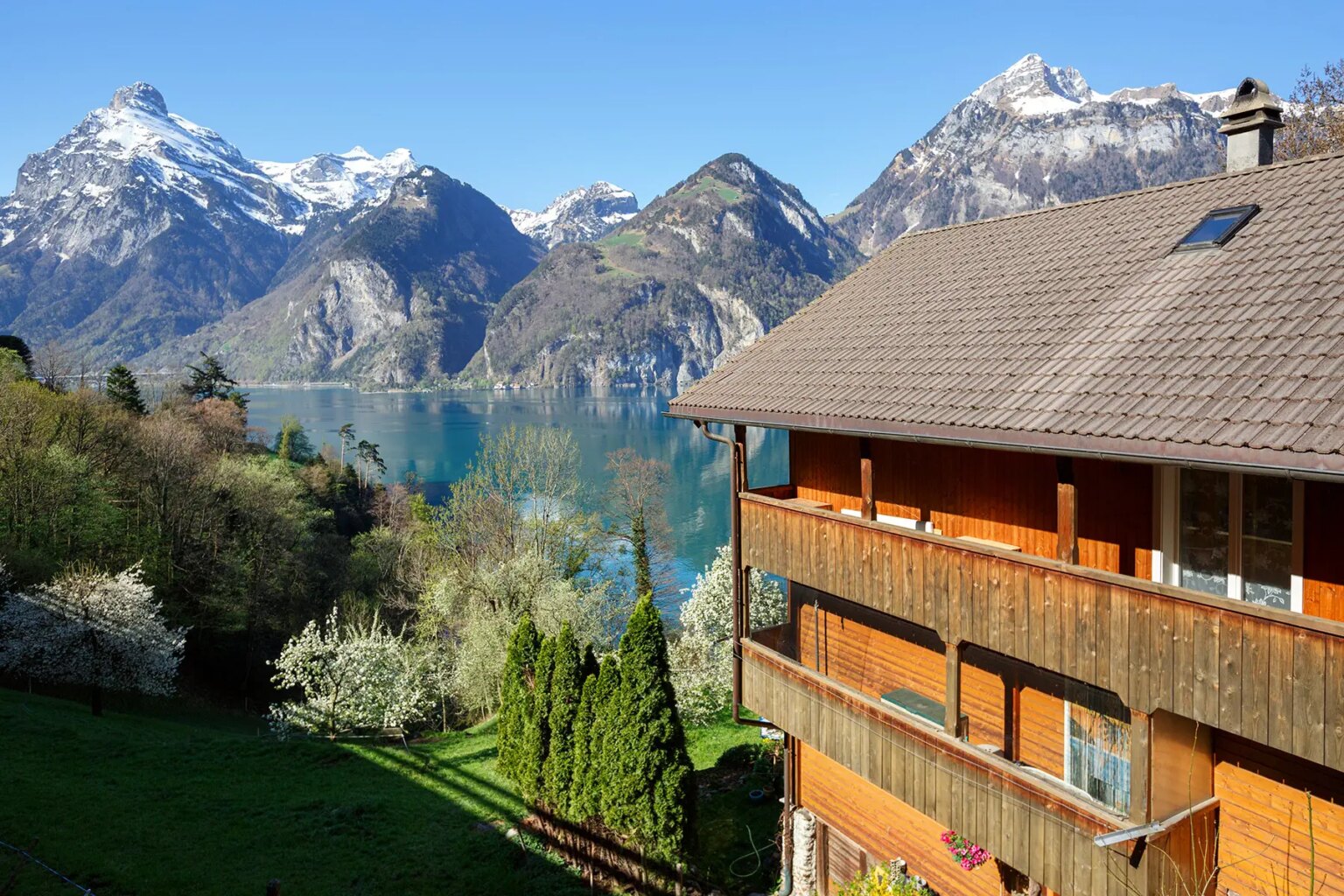Moving to a new country can be confusing, especially if you’re not sure how long you’re staying. Maybe you’re going on a short-term work assignment, or you’re not sure whether you will fall in love with your new home city yet. Either way, one of the first things you’ll need to do when you move to Switzerland is find a place to live.
With this in mind, serviced apartments in Switzerland offer a good solution; even if this is only for a limited time. Keep reading to find out more about:
UMS
If you need a place to stay in Switzerland, try UMS for short-term furnished rentals. They have a range of high-quality apartments across major Swiss cities tailored to the expat market. So, whether you're moving to Bern or Basel, find your next home with UMS.
Serviced apartments in Switzerland
There are several benefits of finding a temporary apartment in Switzerland. Serviced apartments are slightly different to typical rented flats – they come fully furnished, with everything you’ll need in your day-to-day life. This usually includes kitchen equipment and other amenities. This saves you having to worry about buying or moving furniture or dealing with upkeep.

There are other benefits to short-term serviced rentals, too. It’s sometimes easier to find a place to stay for a brief period, rather than a long-term and requires less of a commitment. It’s also significantly cheaper and offers a better, more intimate quality of life than staying in a hotel. You’ll also have better facilities, such as a kitchen.
How to find a temporary rental in Switzerland
To find a suitable property, you can use a specialist short-term lettings company. They can help you find a home quickly, from a trusted landlord. Sites like UMS specialize in these types of rentals in Switzerland.

When looking for temporary accommodation, follow these tips:
- Start looking as early as possible, ideally at least a month before arriving;
- If you can, be flexible about your arrival date;
- Be savvy about key contractual terms, in the language they’re written in, such as minimum rental durations, notice periods, and cancellation terms.
You could also try looking online on more general housing websites, such as Homegate, Immostreet, and Immoscout24. This is a good option if you’re open to a longer-term rental or already have some furniture. Some relocation companies might also be able to help you to find accommodation.
YOSAA
Looking for a flexible rental in Switzerland? Discover YOSAA, the go-to platform for temporary, fully furnished apartments. With a wide range of options, YOSAA makes finding the perfect place for your extended stay easy. Start your journey off right and secure your next temporary home with YOSAA today.
Temporary housing rental prices in Switzerland
Renting in Switzerland is far from cheap. Research by ImmoScout24 and Homegate in 2021 found that rent across the country varied greatly. A 3.5-room apartment costs, on average, CHF 1,135 per month in Jura, and CHF 2,428 per month in Zug.
While some serviced apartments in Switzerland might be nearer the high-end of the scale, subletting might be a cheaper option. What landlords will charge depends on their own circumstances – many are looking to cover their costs, but some might let their homes more cheaply if they believe it’s going to the right person. Make sure to check that your new landlord has permission from the owner to rent out their accommodation.
The degree and quality of furnishing matter too, as the best homes will demand a premium. There’s also the question of the rental term: finding a place for a month might work out more expensive than doing so for three or six months.
Short-term rental services in Switzerland
If you’re looking for other resources could help you on your way:
- Packimpex offers an English-speaking relocation helpline that can give you advice on your options in advance of moving to the country.
- Flats for Expats list specific properties available to expats moving to Switzerland.
However, for many expats, the quickest and easiest way to start looking for a serviced apartment or short-term rental in Switzerland is online. There is an ever-growing list of online property portals, including:
Subletting your own apartment in Switzerland
If you’re locked into a long-term rental agreement, it can make sense to sub-let your apartment if you’re going to be away for a significant amount of time. Sub-letting has been permitted in Switzerland since 1990. There are, however, several rules you will need to adhere to, under Article 262 of the Swiss Code of Obligations.

These rules are as follows:
- The rent you receive must only cover your costs;
- You must have the intention of moving back at a later date;
- You must inform and seek the consent of your landlord and ask them to approve the sub-lease. UMS provides sample templates for this.
How temporarily renting your apartment works in Switzerland
You should put together a sub-letting agreement, with terms and conditions; this will be near identical to your own rental agreement. Verbal agreements are legally allowed, but you’ll have less protection if something goes wrong. Next, you should ask your landlord to review this to ensure none of the terms are breaking your original agreement.

As with anywhere, it’s important to run checks on your potential tenants – including employer and landlord references and credit checks. You should ask for a rental deposit from each person you let the property to, and place that guarantee in a special bank account for the duration of the lease.
As for pricing, unlike short-term letting platforms such as Airbnb, traditional sub-letting is not designed to make a profit. There is one exception to this rule – and that’s if you’ve furnished the property yourself. If this is the case, you can charge up to a maximum of 20% more than your rental costs to use the furniture.
Finally, both you and your sub-tenants should get liability insurance to protect you against any damages.
Subletting services can help you define the right rental fees, get the correct paperwork in order, and quickly find reliable tenants. If you are in a hurry, don’t want to bother with the administrative headaches, or leave your keys in good hand and with peace of mind, these companies’ trustworthy services are well worth the price.
Useful resources
- Homegate – news and guidance about Switzerland’s housing market
- Federal commission for housing (in French, German, and Italian) – government information about housing and tenancy in Switzerland



